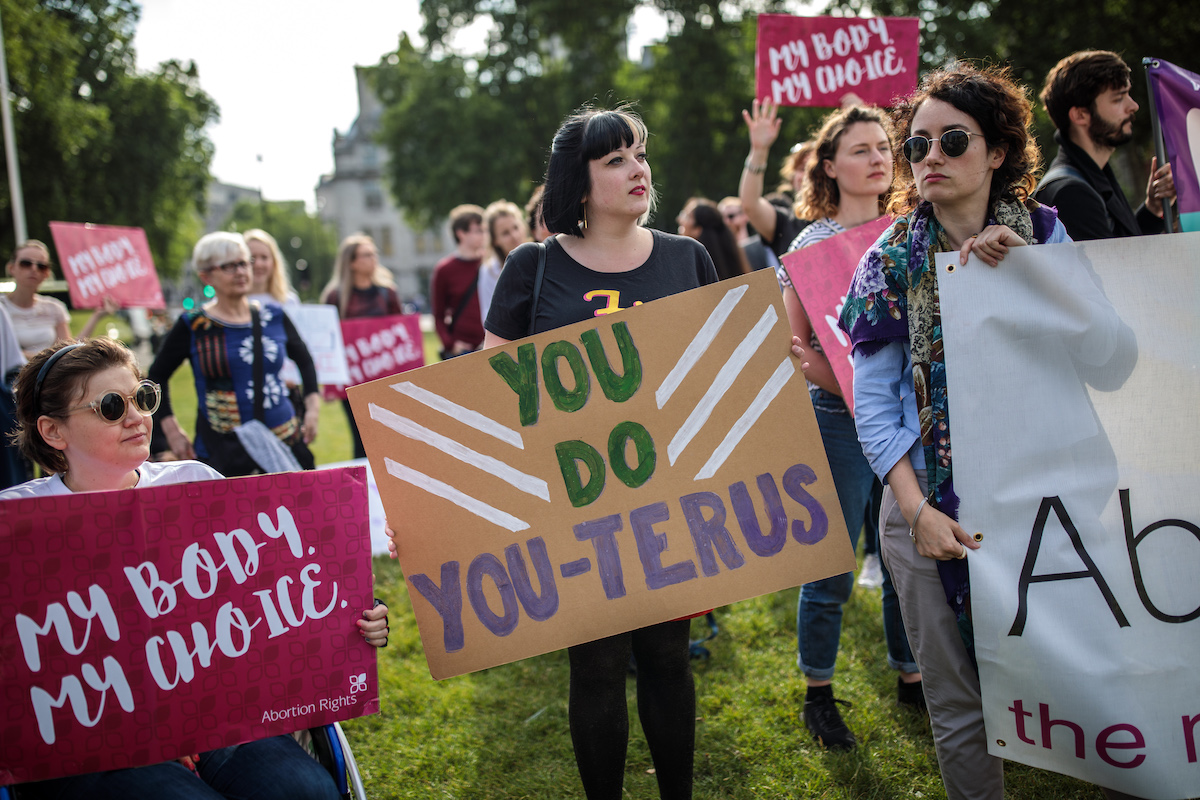At least 15 states have introduced legislation this year to ban abortion as early as six weeks into a pregnancy. These bills are, essentially, backdoor full abortion bans. Since Roe v Wade made it so that states couldn’t straight-up outlaw abortion, legislators have to get creative with their bans. By setting the deadline at six weeks, before many people even know they’re pregnant, it’s a clear de facto ban on abortion itself. But the Republicans behind this sort of legislation have been fairly effective in garnering support for such a ban by framing it around emotional language like a “child’s” “heartbeat.”
In reality, there is no child present; there is an embryo. For many people experiencing pregnancy, there is joy and excitement over the potential future of a child, and that’s great; that’s absolutely beautiful. But those are feelings, not science. According to the science of the situation, what you have at six weeks is, as John Oliver recently explained, “an embryo the size of a pomegranate seed.”
At that point, there is no heartbeat because at six weeks, there is no heart yet. What there is is embryonic cardiac activity, or electrical activity in the fetal pole that runs along the yolk sac. But “healthy yolk sac development” doesn’t have the same emotional grip as “fetal heartbeat,” so anti-choice proponents went with the latter.
What’s upsetting is that anti-choice language works. According to a poll from the Kaiser Family Foundation, about half of those surveyed support a ban on abortions after a “fetal heartbeat” is detected. As you might expect, that division is highly partisan, with only 27% of Democrats ( and 25% of Democrat women) supporting such a ban. 70% of Republicans and 77% of Republican women support the idea.
That number drops dramatically once people are told that a six-week ban affects pregnant people before they know they are pregnant. About one-quarter of those who supported a ban (12% total) changed their opinion when they learned that fact. Who knows how many people would have changed their mind if they were informed about the difference between a heart and a yolk sac.
This brings to mind that time Jimmy Kimmel asked people on the street if they prefer Obamacare or the ACA. Those are, of course, two names for the exact same thing, but the people questioned overwhelmingly bought into the Republican’s vilification of Obamacare. This isn’t just something that affects conservatives–anyone can fall victim to an expertly crafted disingenuous catchphrase–but anti-choice language is especially manipulative. Even the term “pro-life” is manipulative. “Pro-birth” or “anti-abortion” would be much more accurate, but the anti-choice movement doesn’t care about accuracy, they care about evoking specific emotions.
It’s pretty hard to call yourself “pro-life” while pushing an ideology that raises maternal mortality rates AND threatens women with EXECUTION for accessing reproductive healthcare. https://t.co/2azgL5CulD
— NARAL (@NARAL) April 10, 2019
That Kaiser poll showed that there is a lot of misinformation around abortion, not just in what is meant by a “heartbeat bill,” but also regarding Medicaid funding and Planned Parenthood. About one-tenth of those surveyed changed their opinion of Medicaid funding after hearing counterarguments disagreeing with their initial stance. People often form their opinions based on inaccurate or incomplete information. More information is never a bad thing and being informed is the best weapon against this sort of emotional manipulation.
(via Rewire.News, image: Jack Taylor/Getty Images)
Want more stories like this? Become a subscriber and support the site!
—The Mary Sue has a strict comment policy that forbids, but is not limited to, personal insults toward anyone, hate speech, and trolling.—










Published: May 14, 2019 02:12 pm